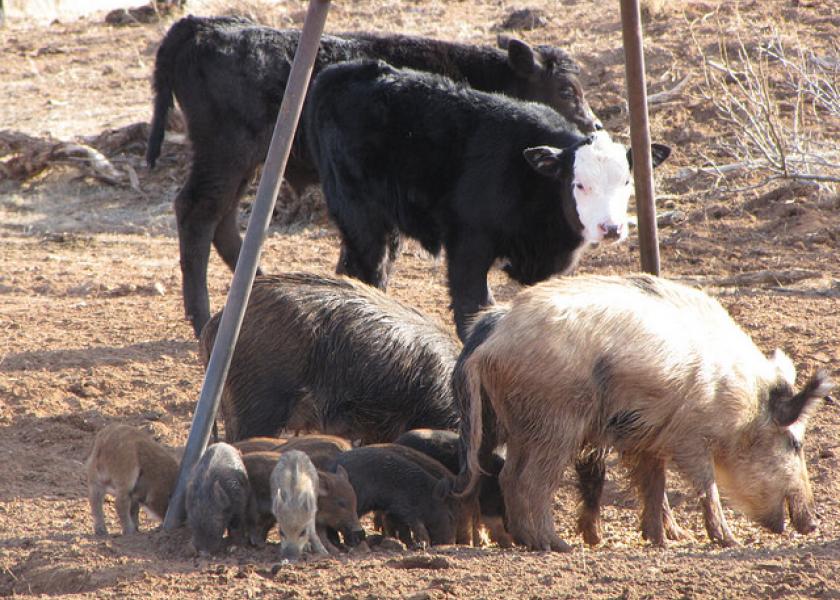Feral Hogs Cost at Least $2 Million Annually in Florida Cattle Production

Feral swine cost the Florida cattle industry at least $2 million a year in lost cattle production, according to a new study led by a University of Florida Institute of Food and Agricultural Sciences researcher.
In fact, researchers believe they may have underestimated the amount of forage destroyed by feral swine, said Samantha Wisely, a UF/IFAS associate professor of wildlife ecology and conservation. Furthermore, researchers kept their cost estimates to lost forage and did not include the cost of restoring range, controlling invasive weeds that feral swine spread and other costs.
“We suspect that the cost is nearly an order of magnitude higher, and our next project will document that more precisely,” Wisely said. Nationwide, feral swine damage and control costs more than $1.5 billion annually, according to the U.S. Department of Agriculture.
Pigs hunt for food by turning over dirt with their noses – what scientists call “rooting.” They eat roots, grubs and basically anything they run across on the ground or under the soil, Wisely said.
“It’s amazing how much dirt they can move with their noses,” she said. “We have seen golf courses, lawns, wetlands and pastures torn up to a depth of almost 2 feet by rooting.”
For the study, Wisely’s team spent 14 months counting the number of plant species in rooted areas versus non-rooted areas in parts of a 10,000-acre swath of cattle rangeland near Lake Placid, Florida. The number of plants that cattle could eat decreased, and the number of weeds and plants that are poisonous to cattle increased after an area had been rooted.
In the study period, plants that were edible had not returned, suggesting that the pasture will remain damaged unless it is replanted or restored by the land manager, Wisely said. The remaining plants are often either toxic to livestock or compete with economically important grasses, making restoration costly because herbicides are needed to remove undesirable plants before replanting with high-quality forage plants.
But Wisely explained why the pigs and hogs are sometimes on ranches.
Feral swine are a culturally important game species in the southeastern United States, she said. In Florida, feral swine are considered wildlife on public land. On private land, they’re designated as livestock. Pigs can be hunted year-round on some state wildlife management areas, but most have seasons and bag limits. On private lands, feral swine may be taken year-round with no bag limit, and many landowners sell guided hunts or hunting leases to people. These hunts bring in about $12,000 to $20,000 a year in revenue, the study said.
Some pigs are removed from private land and sold either for meat or to be released on approved game reserves for hunting, Wisely said. As long as a person has a permit, he or she can transport pigs to approved private land.
The feral swine/cattle study has been accepted for publication in the journal Agriculture, Ecosystems and the Environment.
Source: Institute of Food and Agricultural Sciences and University of Florida







